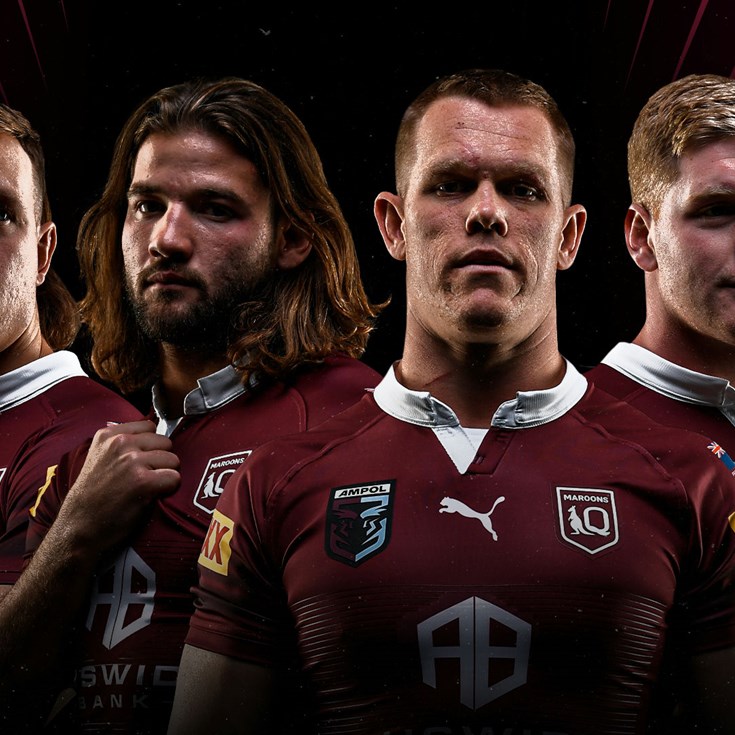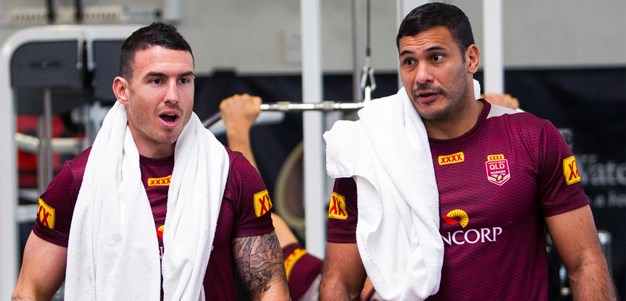The NSW Origin team's drought-breaking series win last year was built on a 'blue wall', holding the potent Maroons attack to just two tries in 160 minutes, but they themselves finished with the fewest points in an Origin series – and the attack needs to go up a gear in Melbourne, according to back-rower Ryan Hoffman.
Despite going down by just a point in Game One with a mountain of possession and field position counting against them in a two-tries-apiece loss, Hoffman said there is room for the attack to improve as the Blues seek to level the series at the MCG next Wednesday.
"Just the way we execute. I think the first half was very good but in the second half it wasn't as good," Hoffman said.
"A lot of that has to do with the amount of pressure we put on ourselves having to defend and fatigue came into it. It's just us working on getting into position nice and early so we can take the opportunities when they present themselves."
If players are able to get into position early that will benefit attacking plays, he said.
"I think the biggest [thing we've looked at so far] was getting ourselves in position earlier. It's all well and good to want to take those opportunities and say 'why didn't you go there?', well we didn't go there because we weren't in position to take that.
"It's coming down to a bit of an onus on the individual to make sure they're in position. We needed to work harder and that's what we're going to do."
Hoffman discussed the example of one of the halves seeing an opening down the short side, but if players haven't got back into position to capitalise, that option to attack isn't there.
"Also getting out of our own end too, it's working back hard so we've got the numbers to get out of our own end so we're not kicking from our 30 the whole time. I thought we made some good metres through the middle but we got bashed up quite a bit at stages too because we didn't have that movement around the ruck."
However fullback Josh Dugan noted that the side had managed to score two tries despite having just two sets inside the Maroons' half in Game One.
"Our defence is one thing we have to worry about but our attack, when we did have the ball and we were down their end I felt like we were pulling them apart and we were creating opportunities for us to score tries," Dugan said.
"We proved that scoring two tries and forcing dropouts and that sort of thing. That second half we just defended too much, came up with a few errors in our end which gave them the ball down our end, I think we played 90 per cent of the second half in our own end which didn't give us a chance to play any good-ball footy. In Game Two we'll just be looking to make those decisions under fatigue and not come up with errors."
Fatigue was one of the biggest factors hurting the Blues' execution late in Game One, according to Hoffman.
"We didn't take opportunities that were presented to us. As I said that fatigue might have been a factor because we had to do so much defence, especially in that second half but if you look at that first half we took opportunities, when Jimmy [Tamou] went through and gave it to Duges [for the team's opening try], that was an opportunity, we built some pressure down there," Hoffman said.
"It's something we need to focus on for this game too, you have to build pressure on Queensland, you can't just expect to come up with tries from your own end all the time."
He said concentration wasn't an issue, as attested by how well the side continued to focus in defence throughout the 80 minutes of the series opener.
"You look at how we defended on our line, we concentrated very well on our defence by having to keep Queensland out. I think fatigue played a factor in that transition so the rule is, if you don't make yourself do so much defence you can get yourself in a position to attack a lot easier."


